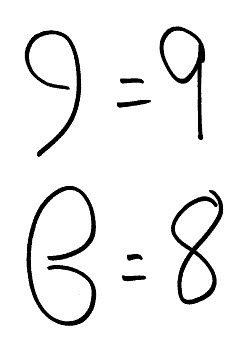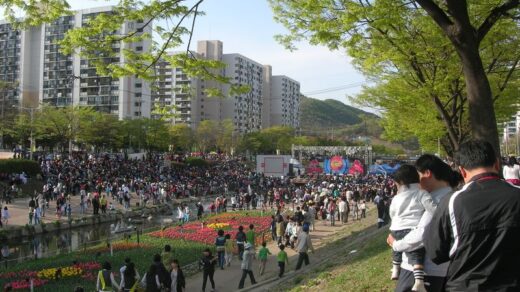In previous posts, I've shared about number units unique to Korean and how Korean prose doesn't include a lot of spelled-out numbers.
Here are three more tips…
———-
Many Koreans handwrite their numbers differently than we do in English. I used to think this was a generational thing, but I occasionally see funny number writing from young people, too.
Translation Tip #1 – When translating handwritten Korean text, watch out for these variants on the numerals "9" and "8".

———-
Most Koreans know how Roman numerals work, but it's not a normal system for writing in Korean. Why risk it when translating?
Korean Translation Tip #2 – It's generally safer to change Roman numerals to Arabic numerals (ex: "Stage IV" >> "4 단계") when translating from English to Korean.
———-
There are two ways of spelling and pronouncing numbers in Korean: the native-Korean way and the Chinese-derived way. Usage depends on context and/or what's being counted, and the correct approach is typically one or the other; not a choice of whichever the speaker prefers. This can be a point of confusion for late learners of Korean like yours truly, but it's second-nature to native Korean speakers.
The issue is particularly relevant for the numbers 1 through 99, which is the same range of numbers Koreans prefer to write as Arabic numerals, instead of spelling them out like we often do in English. (See link in first sentence above for details.)
Since the same Arabic numerals are used regardless of pronunciation or spelling and a Korean translation is likely to use those numerals, this issue normally remains invisible to non-Korean speakers. However, when the numbers are spelled out (which does happen, though not often), there could be situations where they appear to have been done so inconsistently even though they are correct.
Here's an example. The number five written out in native Korean is 다섯, but in Chinese-derived Korean is 오. "Five hours" is commonly written as "5시간" but could be spelled out as "다섯 시간". On the other hand, "five minutes" is best translated as "5분" but might also be written as "오분".
Korean Translation Tip #3 – You're unlikely to get confused by this when reviewing a Korean translation since these numbers will usually be written as Arabic numerals. But just keep in mind that it's possible the same numbers (especially smaller ones like the digits 1 through 9) may appear to be written out inconsistently even in cases where they are correct.



